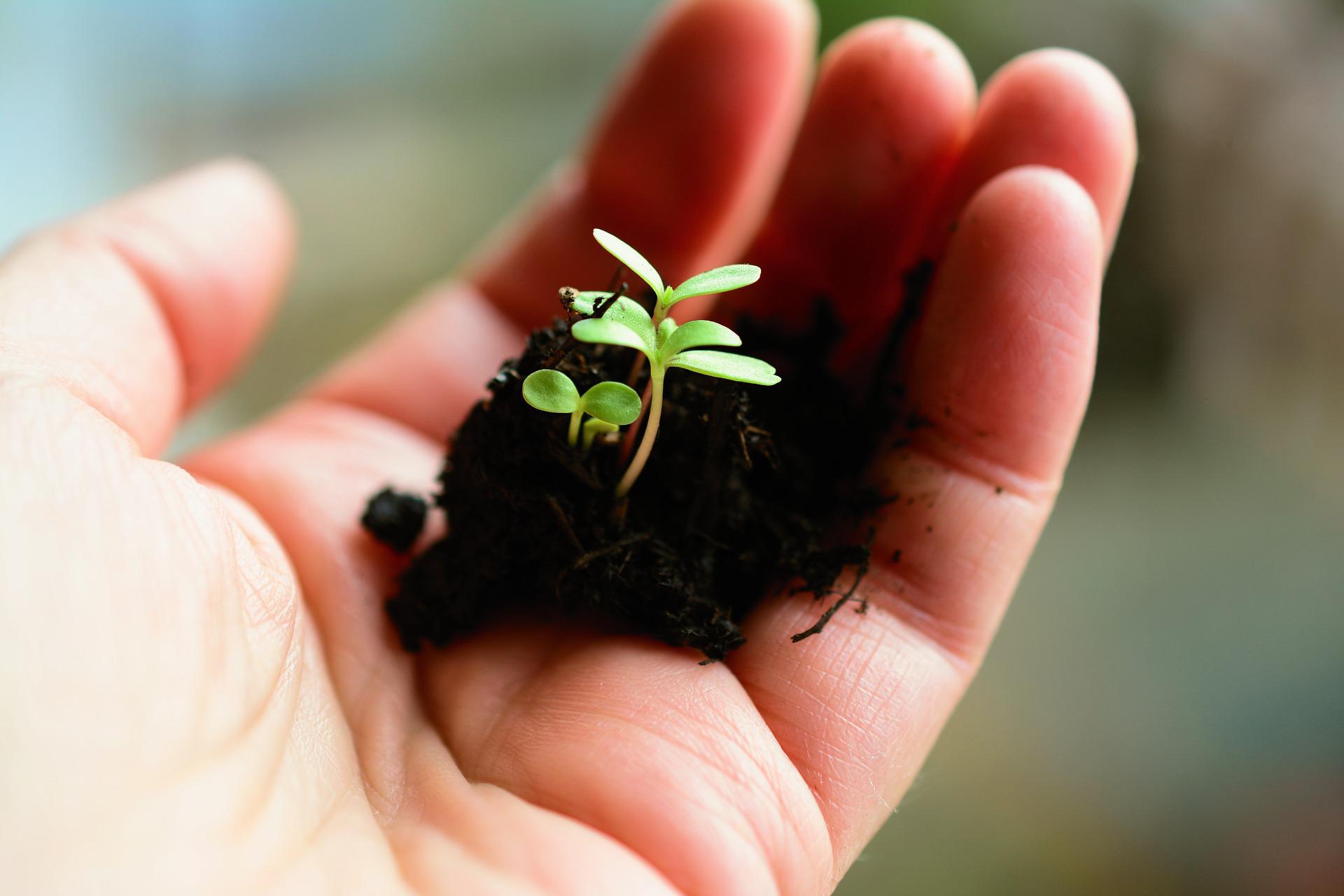Q&A with: Kofi Agblor, Strategic Advisor
SWP: Tell us a little about yourself and your early experiences with agriculture?
Kofi: I was born and educated in Ghana, have an honors B.Sc. degree in agriculture, majoring in crop science (protection) option. My mother was a cocoa and rice farmer and I helped to introduce the first weed management technology in the form of a post-emergent herbicide in rice production in the area. Time from school breaks were spent helping on the farm. I pursued a graduate degree in post-harvest technology in agriculture engineering at Silsoe College (then Cranfield Institute of Technology), UK, and a doctorate in post-harvest technology at the University of Manitoba, Winnipeg, Canada.
SWP: When do you start working in research and technology transfer?
After post-doctoral and research associate at the University of Manitoba, my career and experience in the past 22 years has involved research management, intellectual property, technology transfer and commercialization, innovation, strategic visioning and operational planning and leadership, all focused on agriculture and specifically in the crops area. I was Program Manager and Manager of Research at the Agriculture Research Branch of the Ministry of Agriculture of Saskatchewan, Director of Research at Saskatchewan Pulse Growers (a farmer organization) and Managing Director of the Crop Development Centre at the University of Saskatchewan. I have served on the Plant Breeders’ Advisory Committee (advising the Federal Minister on the implementation of intellectual property regime for crop varieties) for the past five years and I am currently the chair. Thus, my experience is vast, from working with organizations at national and international levels, research prioritization, commercialization and IP management, strategic planning, operations and roadmapping solutions.
My experience is vast, from working with organizations at national and international levels, research prioritization, commercialization and IP management, strategic planning, operations and roadmapping solutions.
SWP: Now you work as a consultant working on intellectual property issues? What are the specific areas you work on?
Kofi: Today I offer clients a few different services building on my previous experiences. First, I provide a better and clear understanding of the issue, the inter-connectedness and how the value chain is vital to every unit’s success. I also provide roadmapping for solutions, facilitate collaboration among industry players, and explore public-private partnerships in seed development to accelerate innovation in the sector.
SWP: Your history is very interesting. One of the reasons I reached out was because so much of your experience is focused on helping different sectors and different parts of the seed industry collaborate. In conversations about intellectual property (IP), it seems like the company that owns the IP is the winner and possibly the only winner. In your opinion, who benefits from IP?
Kofi: All members of the crop production value chain benefit from IP in the seed. It takes considerable time ranging from 7-10 years to develop a variety and bring it to the market, even with the application of modern breeding tools. All traits — agronomic and consumer traits — are carried in the seed. Most seed traits offer higher on-farm productivity, hence farmers benefit from increased yields and consumers benefit from available supply at a fair price. The creators of varieties also benefit and have the incentive to reinvest in plant breeding.
Farmers benefit from increased yields and consumers benefit from available supply at a fair price. The creators of varieties also benefit and have the incentive to reinvest in plant breeding.
SWP: Sounds like there are a lot of winners in this situation. In your experience, are there certain places within the seed industry where IP is successfully executed?
Kofi: At the Certified (or commensurate Pedigree seed) stage. This is particularly useful when the seed lacks a patented trait. Executing IP on harvested grain raises the issue of farmers’ privilege under UPOV ’91, unless stipulated under a contract or by appropriate legislative instrument.
SWP: Many of my discussions about UPOV ’91 talk about plant breeders’ rights and the breeding exemption. Can you explain a bit more about how executing IP on harvested grain raises issues about farmers’ privilege under UPOV ’91?
Kofi: Farmers’ privilege under UPOV ’91 is subject to national laws that can allow royalty collection on farm-saved seed. This approach has been adopted in Australia, France, and the UK, for example. In Canada, the legislative changes that will allow royalty on harvested grain is expected to be part of the regulatory amendment for UPOV ’91 legislation and consultations and discussions are currently ongoing with value chain members including farmers to get buy in and input towards a system that will benefit all involved.
SWP: This might be putting you on the spot, but in your opinion are there any places that IP is not a beneficial tool? I understand that public breeding often focuses on pre-commercial research that most companies would not want to invest in themselves. Is this an example of where IP might not be as effective?
Kofi: Most research in crop/plant sciences generates results that are essentially public goods. All IP must have novelty, non-obviousness, and utility, to be granted legal rights, hence pre-commercial research with IP potential should be protected. One place where IP should not be encouraged is gene/loci discovery for traits that are already used broadly in plant breeding and the seed industry. Elucidation of the gene or region itself should not negate the “prior act” of the prior broad use of the trait.
One place where IP should not be encouraged is gene/loci discovery for traits that are already used broadly in plant breeding and the seed industry.
SWP: You’ve mentioned that IP helps allied technologies work together. Can you explain what allied technologies are?
Kofi: Allied technologies include genomic tools and other applications and tools that have been reduced to practice from related scientific disciplines, biochemistry, genetics, physiology, pathology, etc.
SWP: Thinking more about the cross-pollination of ideas, how can different parts of the seed industry work together to create new products?
Kofi: Seed value chain members can form partnerships to create new seed. Technology developers, seed marketers and plant breeders usually work together to create new seed products. Technology developers and plant breeders can also work collaboratively or independently to bring new seed to the market. Farmers also work with plant breeders to develop seed for the market and this collaboration usually focuses on public good traits in agronomy and disease resistance that protect crop yield.
SWP: Pushing a little bit further, can the IP solutions you are talking about work between seed and chemical products?
Kofi: Certainly. Cross-licensing has been used between seed and chemical products and I would expect that to continue, where mutual benefits exist.
SWP: One concern with venture capital (VC)-funded ag start-ups is that each company is re-inventing the wheel because they do not work together or share data. How do we prevent information from being siloed by private companies? One of the strengths of agriculture is public research and many people building on it.
Kofi: Information generated with private capital needs to be exploited to generate a return on investment, meaning that the information will not be widely available for use by others for some time. Private companies can leverage that information for access to germplasm or other useful technologies from public institutions, to generate greater value. I am not overly concerned that the “withholding” of information by private companies will cause long-term harm to the overall plant breeding efforts. I do not know whether the VC-funded startups are reinventing the wheel, however they’re certainly making use of publicly available genomic information and reducing it to practice, creating “novelty”. My experience is that some of the VC-funded startups seek partnerships with public institutions, especially within universities. Suitable working arrangements have not resulted partly due to the timeliness for resolving issues and IP concerns.
SWP: Agriculture has seen an increase in private funding and a decrease in public funding. Do you have any thoughts about what this decrease in public funding means for the seed industry?
Kofi: It depends on where decreased funding is applied. In Canada, Agriculture and Agri-Food Canada plays a significant role in cereal breeding in Western Canada, thus a reduction will directly impact variety development. Where funding reductions are applied to scientific disciplines supporting pre-commercial research and breeding, genetics and genomics, plant pathology, biochemistry, physiology, etc., we can anticipate a delay and/or reduction in breakthroughs and trait development that drive innovation in seed development.












